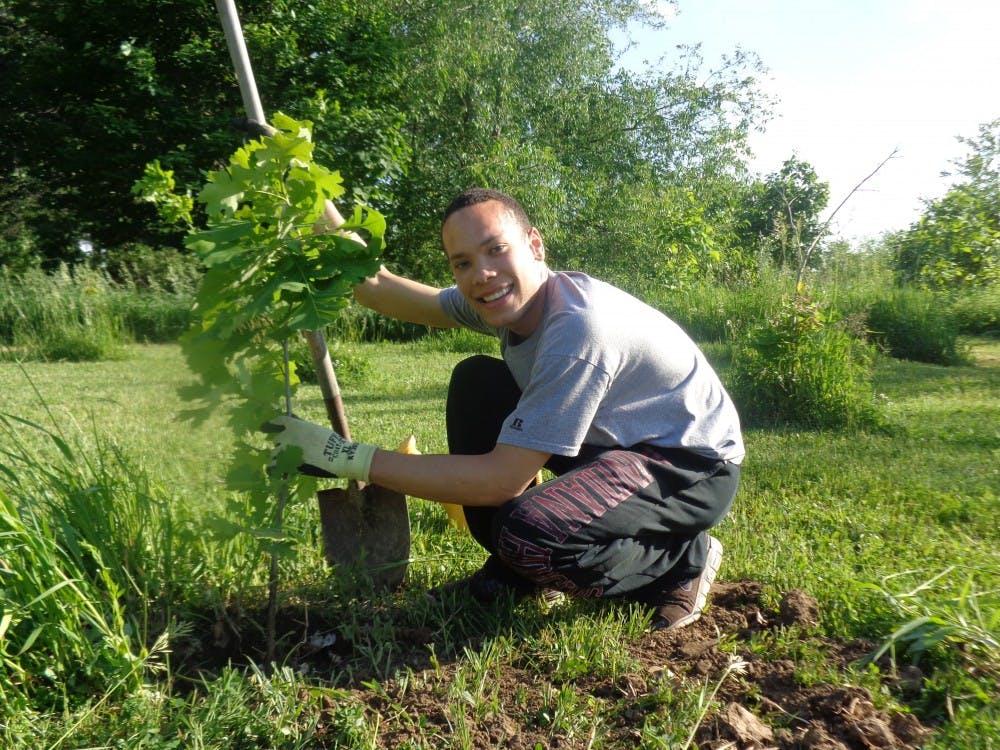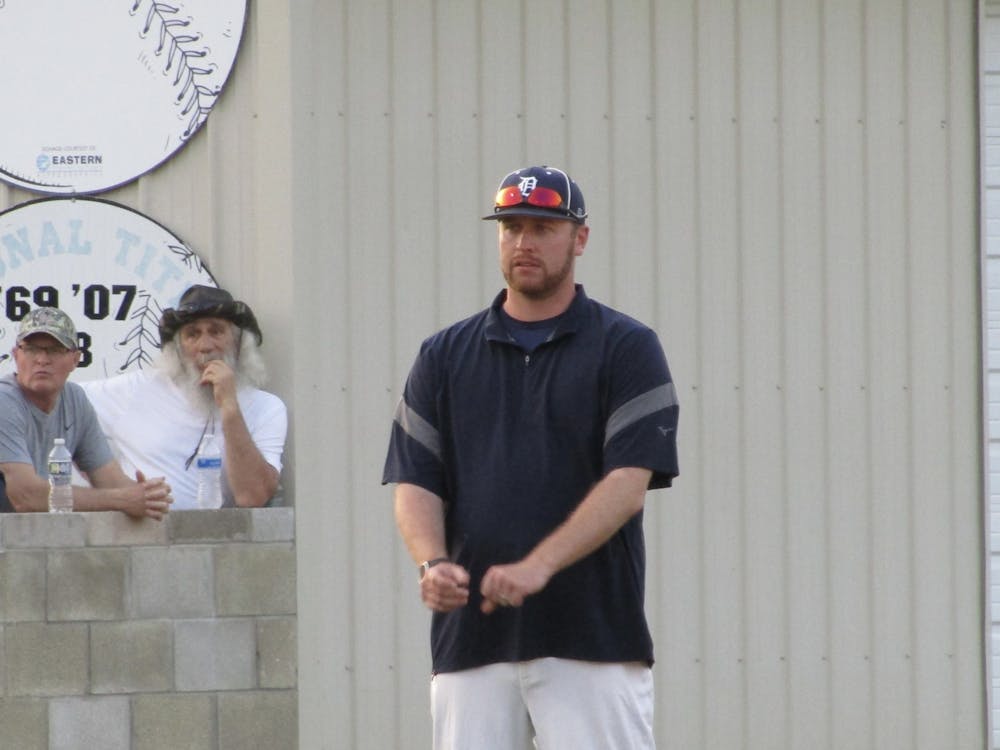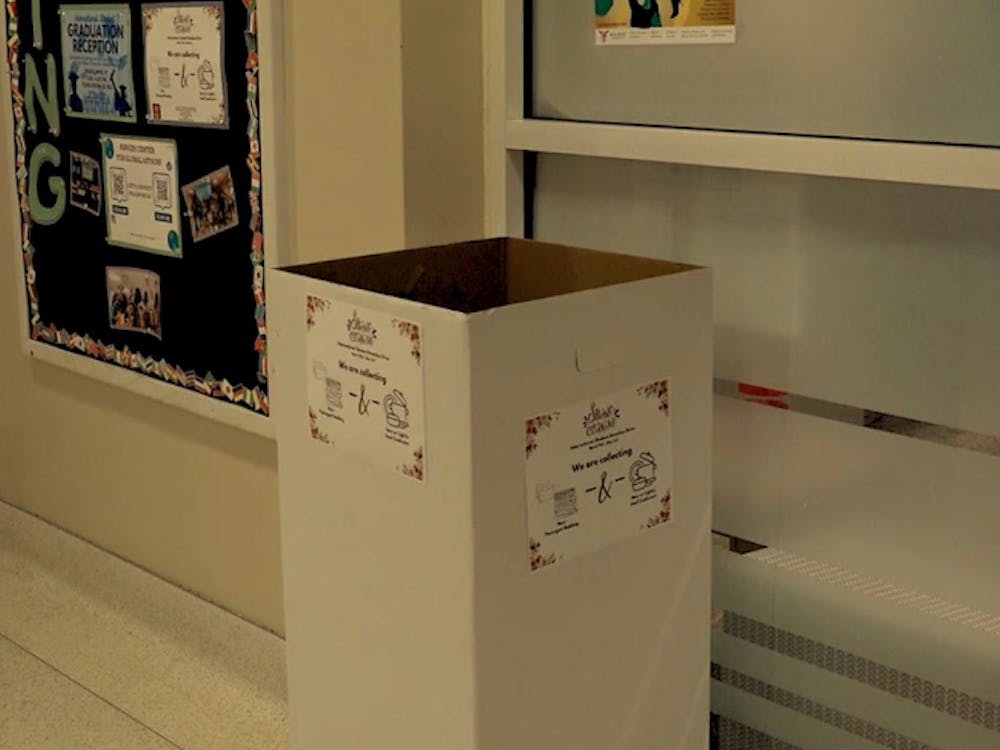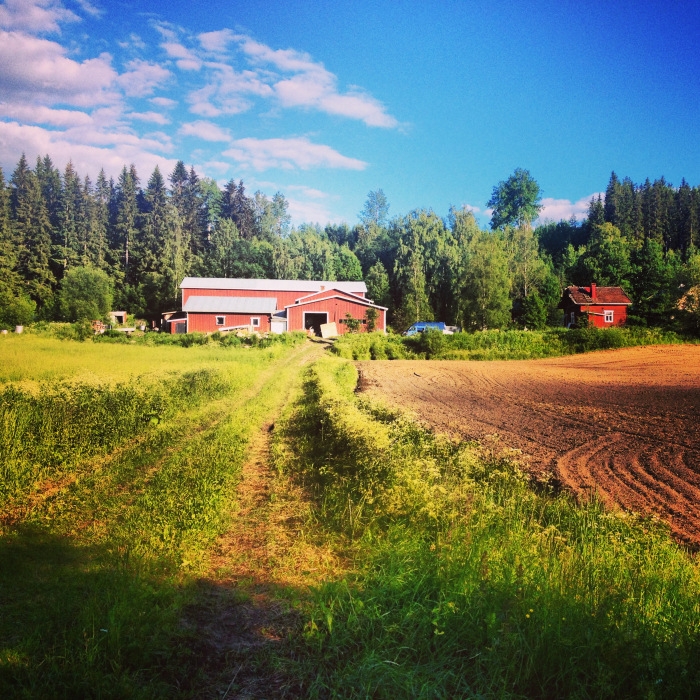 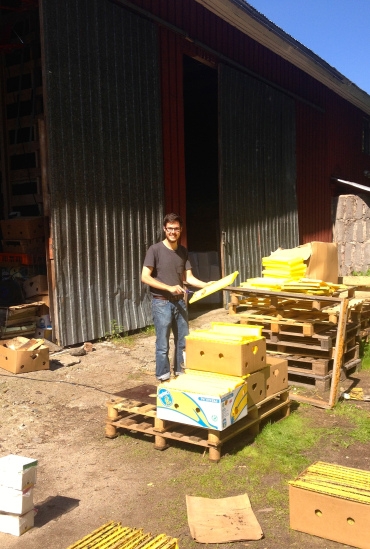
|
| LEFT Komppa-Seppälä bee farm is located in Korpiaho, Finland. The farm is one of 43 in Finland that offers WWOOF opportunities. RIGHT Stone Irr poses for a photo as he works on a bee farm in Korpiaho, Finland. Irr is a senior American studies major at Indiana University who is working on organic farms in the Netherlands and Finland this summer as part of WWOOF. BELOW Brian Maxwell stands in the room he shared with Irr during their time WWOOFing at a macrobiotic market distributor in Castricum, Netherlands. PHOTO COURTESY OF STONE IRR, BYSTONEANDBRIAN.WORDPRESS.COM |
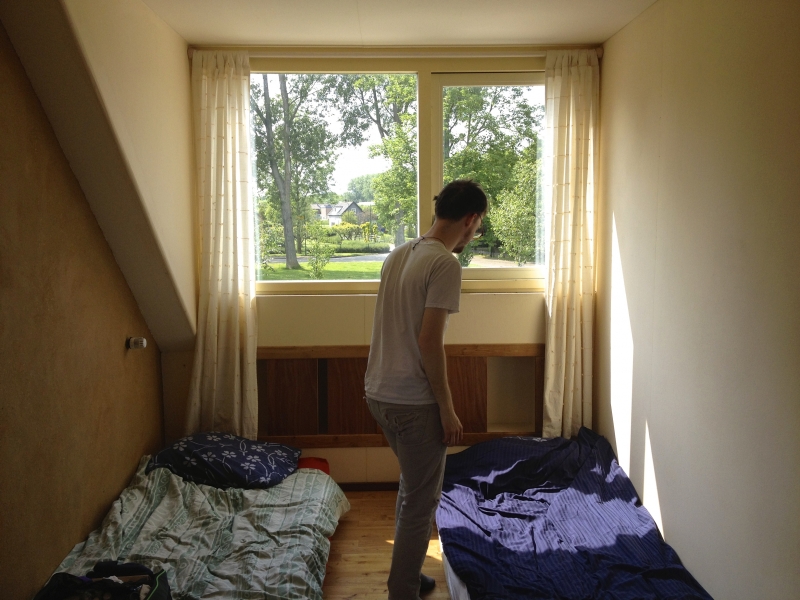 Cost is often the main factor that stops college students from traveling over summer break, but some students are finding a way to cut down that cost.
Cost is often the main factor that stops college students from traveling over summer break, but some students are finding a way to cut down that cost.
Stone Irr, a senior American studies major at Indiana University, has spent the last eight weeks exploring Europe, spending a few weeks at a time working at organic farms in exchange for free food and a place to sleep.
Irr is one of many who have taken up “WWOOFing” as a way to not only travel for less, but also learn about organic farming in the process.
WWOOFing, or World Wide Opportunities on Organic Farms, began in the autumn of 1971 when Sue Coppard, a secretary living in London, realized how hard it was for someone living in the city to access the countryside, according to wwoof.net, the official site where farms and workers from more than 50 countries come together to coordinate.
Coppard began by working during the weekend at a farm in Emerson College near Essex, England.
For Irr, the reason to WWOOF was simple — a curiosity and passion for what it takes to get food to the table and how he could learn to do it healthier and better.
An additional love of travel led him to sign up with a friend. To start the summer, they worked at a macrobiotic market in the Netherlands, which focused on a lifestyle where people eat foods that balance “yin” and “yang,” typically East-Asian grains, vegetables and some seafood, according to Irr’s blog, bystoneandbrian.wordpress.com.
Currently, they are working at the largest bee farm in Finland. The two have stopped at several other locations along the way.
WWOOFing is more than just a cheap way to travel, the website is quick to point out. Potential WWOOFers should have a respect and interest in organic or alternative farming methods.
Irr fit right in.
“It is the best way to be in another place because you are doing something good,” he said. “If you want to learn what it is like on a farm, then [people] should go for it.”
But being a WWOOFer doesn’t mean people have to fly for hours and learn a new language.
The Oakwood Retreat Center at Rainbow Farm is in Selma, Ind., a 20-minute drive from Ball State and offers food and a bed to young people who are willing to work for an escape from the everyday life.
Ted Blodgett runs the farm that hosts retreats for groups looking for meditation, alternative healing modalities or just a break from the commercial environment.
He said the farm recently began offering a place for young people, like their current WWOOFer Aaron Thomas, to come and work for a summer.

|
| Aaron Thomas works at the Oakwood Retreat Center at Rainbow Farm in Selma, Ind. Thomas was working in Chicago before he decided to participate in WWOOF. PHOTO PROVIDED BY AARON THOMAS |
Thomas was working in Chicago, spending three hours on a train to and from work each day. It was on one of these trips when he met a friend who introduced him to WWOOFing.
“I had my life all planned out the way I though it should be, moving up,” he said. “And for me, man, it was you sit down and say, ‘Did I really want this, where is the motivation behind this move?’”
That thought led him to make a change.
Originally, Thomas planned to go to Nepal and “beg a yogi to let [him] live with him.”
But a 4 a.m. search on wwoof.net led Thomas off that path and into Rainbow Farm.
“And it seemed like for the first time making the decision like this, I really had the motivation to move,” he said.
Working around nature and in a spiritually enlightening environment had always interested Thomas and after speaking with Blodgett, he knew Rainbow Farm was where he needed to be.
Every day is different for Thomas. Instead of following a schedule, he walks through the farm looking for something that needs to be done, whether that is planting flowers, pulling weeds, working on a small apartment or building a fence to house some new baby goats.
“The main thing is they allow you to be yourself here,” he said. “When you allow someone to be themselves, they understand here is the rubric, this is the goal for this place. And however that is most natural to you, that goal is to be accomplished. There is nothing more pleasant to watch.”
Rainbow Farm’s laid-back attitude could best be summed up in its unofficial motto, Blodgett said: “Today, we are going to adapt. And this afternoon, we are going to adapt. Then tomorrow morning, we are going to adapt.”
Thomas will leave the farm this fall to work at an ashram with the Isha Foundation, a volunteer organization founded by Yogi Sadhguru that strives to “cultivate the human potential,” according to its website.
Irr plans to do a transnational trip next summer, taking what he has learned this summer and applying it to farms in the United States.
But a summer’s worth of firsthand farming knowledge isn’t the only thing Irr will bring back with him when he returns to IU.
“It is nice to have the stories,” he said.

